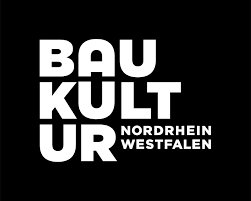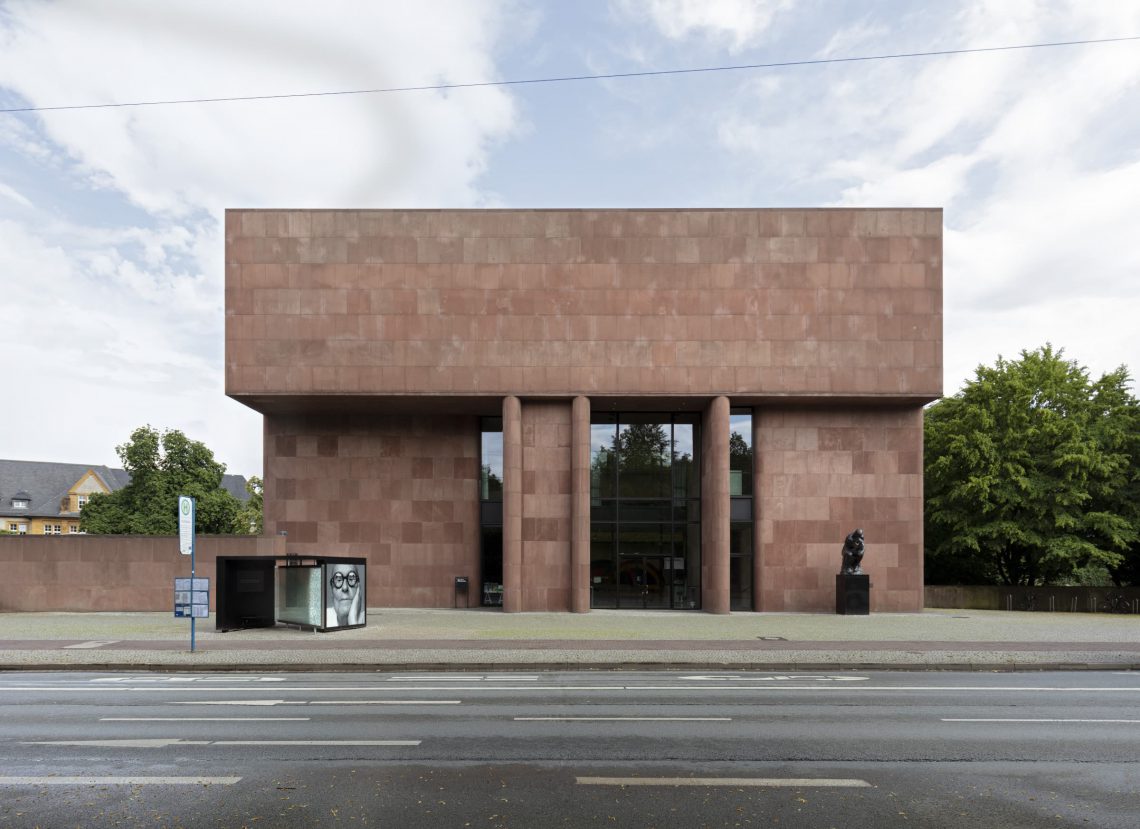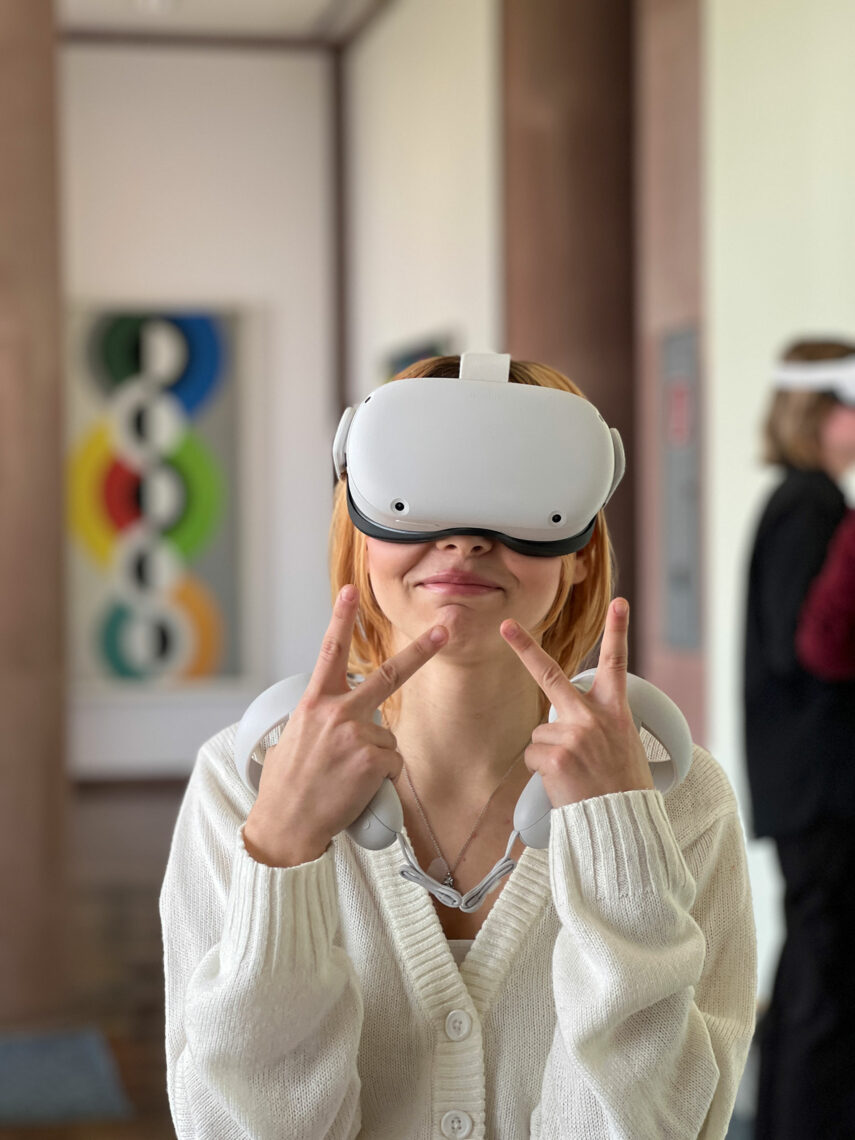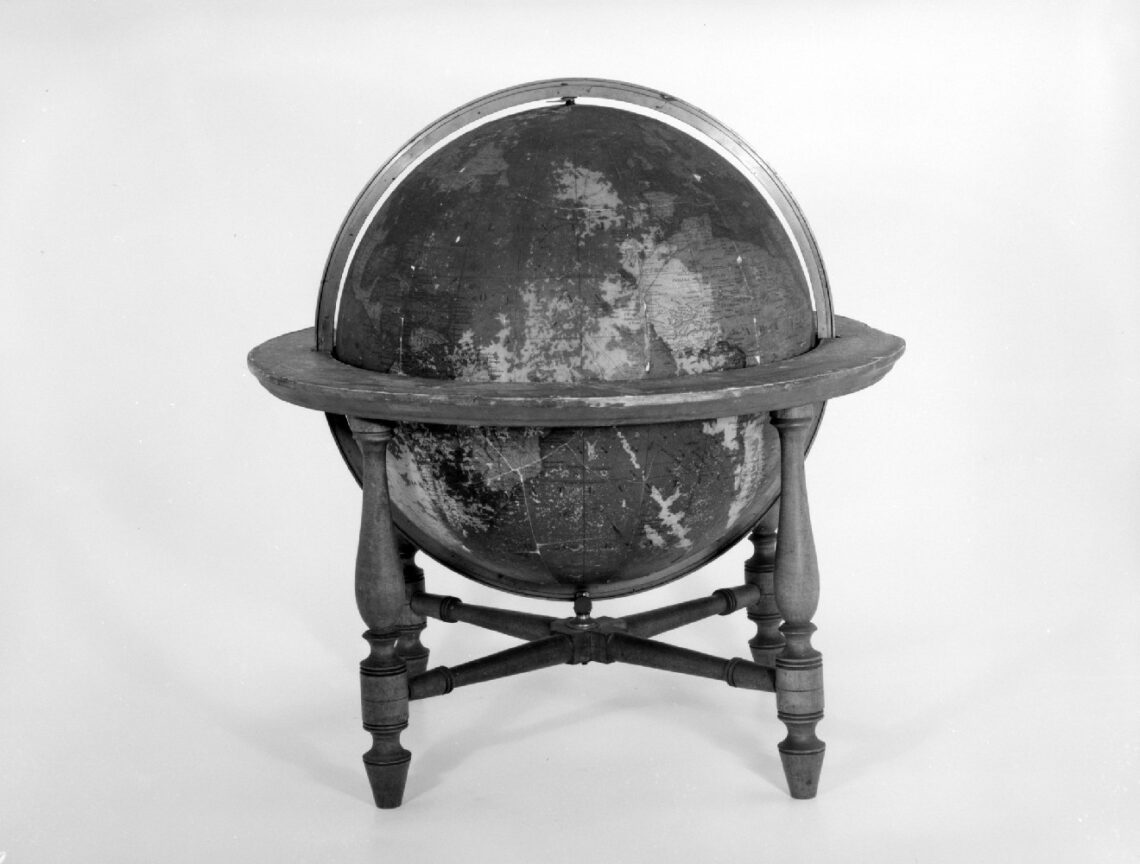Architecture Symposium Part II
What next? More and more is not enough.
Best practice in dealing with redevelopment, expansion, rezoning
in the mirror of the extended museum function of the Third Place.
September 1 + 2, 2023
Museums and their collections are growing. The forms of art are changing and, above all, the tasks and functions of the museum are in a constant state of flux. The success story of modern as well as contemporary art, is reflected in the numerous new buildings and extensions since the 1980s. Today, successful museums perform numerous other tasks in addition to their classic tasks of preserving, collecting and communicating. They are third places, function as urban forums of an increasingly diverse society and make an essential contribution to an open society, to the promotion of public spirit and community. A future-oriented renovation and modernization of the Kunsthalle Bielefeld must also respond to these changed parameters since its construction in the 1960s. The Kunsthalle is not only a monument, but also a museum, which should function in the future.
Which renovations and expansions can be seen as “best practice”? In what relation can or should “old” and “new” stand to each other? How can historic preservation approaches be combined with today’s demands and how are historic building elements still kept alive without subjecting them to historicizing mummification under the guise of historic preservation? And finally, the central question: how to continue when more and more is not enough?
Come by and join the discussion!
You can find a playlist with the recordings of all presentations on our YouTube-Channel.
Blog posts on each keynote and the corresponding recording are linked below in the biographies.
We meet in part II
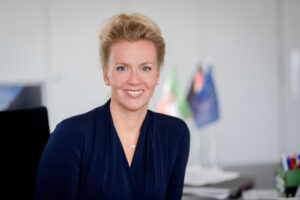
Minister for Culture and Science of the State of North Rhine-Westphalia
She holds this office since June 29, 2022 . Before becoming Minister of Transport in North Rhine-Westphalia in October 2021, she worked for 15 years in a large international planning company, 10 of them as managing director. She studied Political Science, Medieval and Modern History and English Philology in Göttingen and Rome.
She will be sending us a greeting speech on September 1 (video message).
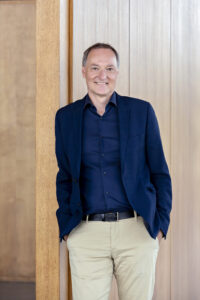
Deputy Director New National Gallery Berlin – incl. Museum of the 20th Century, Museum Berggruen, Collection Scharf-Gerstenberg, Head of Collection 20th Century Art
His scholarly focus centers on post-1960 international Western art, media art, and architecture. Joachim Jäger was born in Munich in 1963 and is a curator of major exhibitions and collection presentations as well as an expert in architectural issues and museum construction. Through consulting on the renovation of the Neue Nationalgalerie, he played a central role in the development of the new “Museum of the 20th Century” building. Joachim Jäger is also a long-time mentor for the “Preis der Nationalgalerie”, author and editor of numerous publications.
Projects (selection): Gerhard Richter. 100 works for Berlin (2023); Monica Bonvicini. I do You (2022/2023), Alexander Calder. Minimum/Maximum (2021), Art of Society. 1900-1945. The collection (2021), Rosa Barba (2021) Pablo Picasso x Thomas Scheibitz. Sign, Stage, Lexicon (2019), Michael Wesely. 1:100 (Barcelona 2019), Ernst Ludwig Kirchner. Hieroglyphics (2016), Otto Piene. Rainbow (Tehran, 2015), Otto Piene. More Sky (2014), Expansion of the combat zone. 1968-2000. The collection (2014), Paul McCarthy. The Box (2013), The Divided Sky. 1945-1968. The collection (2012) Wolfgang Tillmans. Lighter (2008), William Kentridge (2007).
He will give the keynote address:
Form versus function. The solution rarely lies in the middle.
Examples from the renovation of the Neue Nationalgalerie.

Full Professor of Construction Heritage and Historic Preservation, Department of Architecture, ETH Zurich
Her professorship is affiliated with both the Institute of Historic Preservation and Historical Building Research and the Institute of Technology in Architecture. It deals with theoretical and practical challenges of inventorying and preserving monuments as well as younger building stocks. Research focuses on the rationalization of construction processes as well as the development, repair and long-term preservation of serially, industrially and digitally manufactured structures. As part of a new research and exhibition project, she is addressing the heritage of minorities, marginalized groups and people without a lobby under the title “Whose Heritage?”.
She will be giving the keynote address:
The overwhelmed monument

Curator and theorist who is currently Associate Professor of the curatorial/politics seminar of the CCC RP research-based Master at HEAD Genève/Switzerland.
Director of the Cross-Collections Research Department of the Staatliche Kunstsammlungen Dresden (SKD)
She has been the director in Dresden since 2021 where she initiated the Stannaki Forum on diasporic knowledge, and conceptualizes the Transcultural Academy “Futurities” in 2023. Ongoing projects include the case-based academic research study “Decolonizing Socialism: Entangled Internationalism” (2019–24), funded by the Swiss National Science Foundation. Based on this research, a new series of exhibitions, called “Sequences: Entangled Internationalisms”, is coming up in 2024 featuring invited curators-researchers and artists at the Albertinium of SKD. In 2022, she realized “The Missed Seminar: After Eslanda Robeson in Conversation with Steve McQueen’s End Credits” at Haus der Kulturen der Welt, Berlin. She has published with e-flux journal, MIT Press, Oxford University Press, Jerusalem Quarterly, spector books, archive books, IBRAAZ, and Sternberg Press. She is a cofounder of the Harun Farocki Institut in Berlin.
She will be giving the keynote address:
Vulnerable Processes. Vulnerable Processes. A Curatorial Reflection on the Museum in Transition.
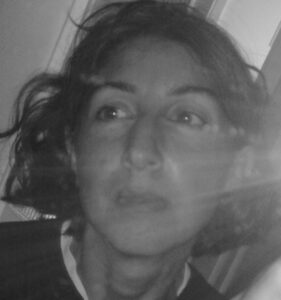
Assistant Professor of Museology, Department of Architecture, University of Patras
She is the director of the module “Organization and Design of Museum Spaces” in the Master’s program in Museum Studies at the University of Athens. She is also the lead researcher on the H.F.R.I. funded research project Understanding Museum Architecture for Digital Experiences (2022-2025). She received her PhD from The Bartlett, University College London, on the interaction between buildings and exhibition design in museums, and worked as an exhibition consultant for the Greek Ministry of Culture and for architectural firms in national and international design competitions. Her recent book ‘Museum Space: Where Architecture Meets Museology’ (Routledge, 2015) presents a methodology for studying museums and a theoretical framework for interpreting them.
She will be giving the keynote address:
The spatial culture of museums (Die räumliche Kultur des Museums)
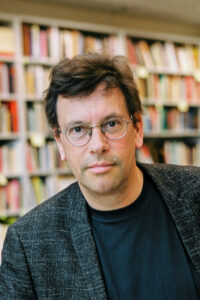
Professor of History of Art and Architecture, ETH Zurich
He studied in Geneva, Vienna and Berlin and received his PhD from the FU Berlin in 1993. He has taught at the UdK Berlin, Columbia University New York, Cornell University, Barcelona Institute of Architecture and the University of Zurich. He is the editor of Herzog & de Meuron: Natural History (2002), co-editor of Gordon Matta-Clark: An Archival Sourcebook (2022), author of The Art of the Present (2010), The Value of Surface: Essays on Art, Architecture, and Economics (2017), and Joseph Beuys: Art, Capital, Revolution (2021), among others. Together with Karin Sander he is responsible for the exhibition “Neighbours” in the pavilion at the Venice Architecture Biennale 2023.
He leads us through the discussions as a moderator and gives the lecture:
Make Museums Great Again? The future of museum architecture
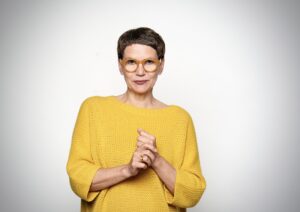
Chair of Art Theory & Staging Practice, Zeppelin University Friedrichshafen,
She has held this position since 2003 and has also been the academic director of the artsprogram at the university since 2006. Teaching and guest residencies have taken her to the Chinati Foundation in Texas, the University of Witten/Herdecke, Stanford University, and the IKKM at Bauhaus University Weimar, among others. Van den Berg’s research focuses on art and politics; socially engaged art; the theory and history of exhibiting; museum architecture; and studio research.
She will be giving the keynote address:
Abhängen statt aufhängen? – Museum Spaces and the New Ethics of Communitization

Professor Emeritus of Modern and Contemporary Art, University of Zurich
He is an art historian and was born in Lucerne, Switzerland in 1940. After being a professor at the University of Zurich (1983-2005), he became a visiting professor at the Yale School of Architecture (2010-2014) and at the ETH Lausanne (2016). Author of monographs on Le Corbusier (1968ff.), Italian Renaissance architecture (Tower and Bulwark, 1976), the architecture of Venturi, Scott Brown & Associates (1987; 1999), and on the history of design in Switzerland (Industrial Aesthetics, 1992). Curator and co-curator of several exhibitions on Le Corbusier, Venturi, Rauch & Scott Brown, and Louis Kahn. Works on projects on the tension between visual arts and architecture in the 20th century. general and on architecture and politics around the middle of the 20th century. His most recent books focus on the Swiss contribution to the WW2 reconstruction debate (First Aid. Architectural Discourse after 1940, Zurich 2021) and the architecture of Herzog & de Meuron (Twenty-five x Herzog & de Meuron, Göttingen, 2023; with Arthur Rüegg).
He will give the keynote address:
„Invisible“ Museums. or: The invention of the new as the discovery of the existing.
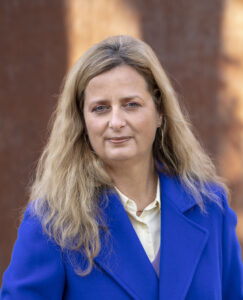
Director of the Kunsthalle Bielefeld
Since February 2020, art historian Christina Végh (*1970 Zurich) has been director of Kunsthalle Bielefeld. Previously, she directed the Kestner Gesellschaft in Hanover from 2015, and was director of the Bonner Kunstverein from 2004 to 2014. Her first station after her studies at the University of Zurich (art history, ethnology, philosophy) and a stay at the University of California Santa Cruz, was the Kunsthalle Basel, where she worked as curator from 2000 to 2004. Végh has curated exhibitions with Monica Bonvicini, Monika Baer, John Baldessari, Rita McBride, Haegue Yang, Charline von Heyl, Annette Kelm, James Richards, Franz Erhard Walther or Christopher Williams, among others, and is also responsible for extensive group exhibitions such as “Where Art Can Happen. The Early Years of Cal Arts” (co-curator Philipp Kaiser) or “Made in Germany Three” and published in corresponding catalogs. Végh is active in numerous committees and juries, including in 2017 as a guest juror of the Wolfgang Hahn Prize, Ludwig Museum Cologne or at Pro Helvetia as a member of the Art Biennale jury (2015-2018), and since 2018 she has been a member of the jury of the Justus Bier Prize. From 2008-2012 Végh was involved in the board of the Arbeitsgemeinschaft der deutschen Kunstvereine (AdKV). In 2010, Végh was awarded a prize for art and architecture education by the Swiss Arts Commission of the Federal Office of Culture.
She will welcome us on each day of the symposium with an introduction and moderates discussion sessions.
Click here for her introductory blog post “Kunsthalle Bielefeld – developing for the 21st century: renovation/expansion”.
The symposium is sponsored and supported by:

